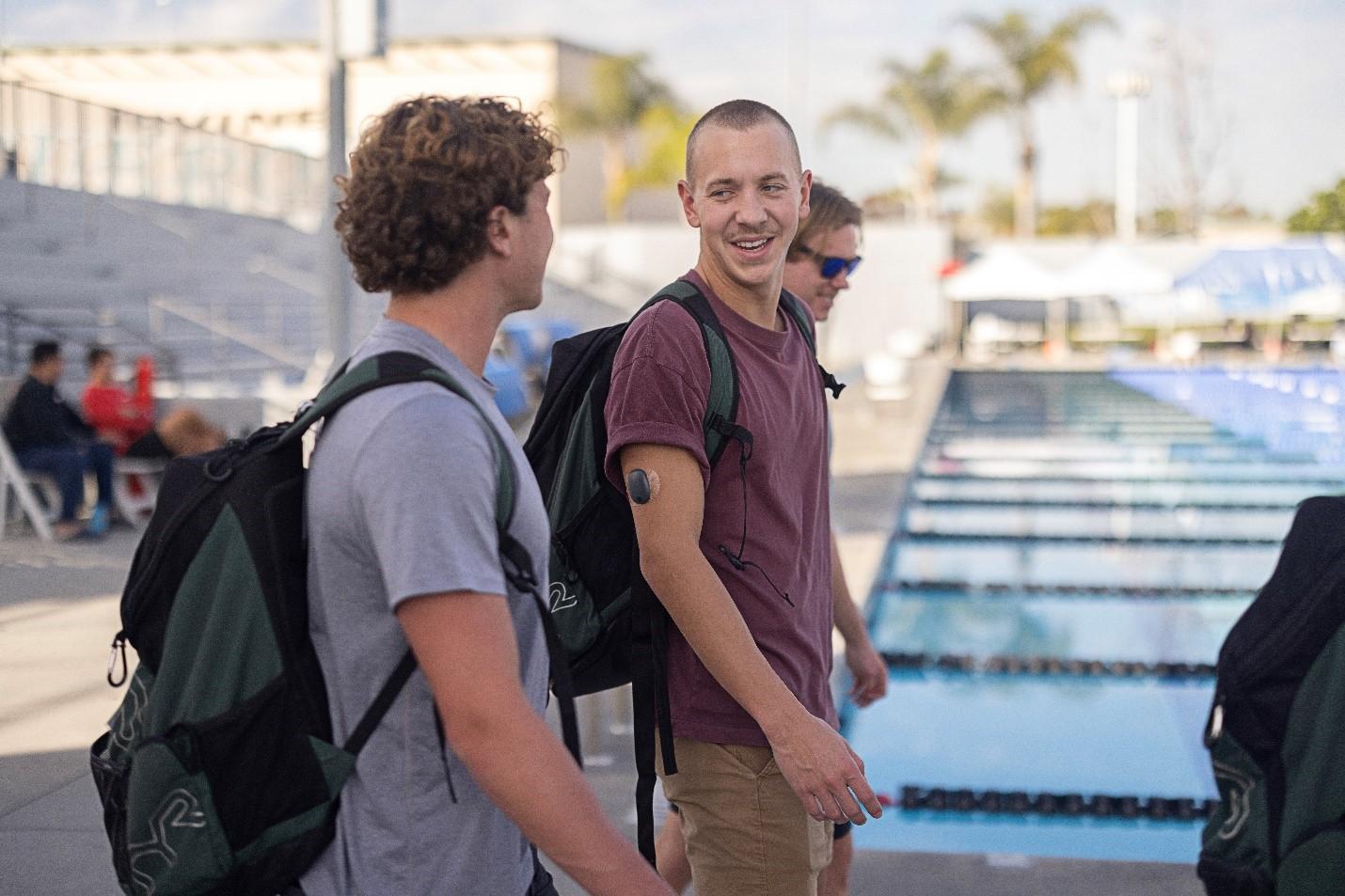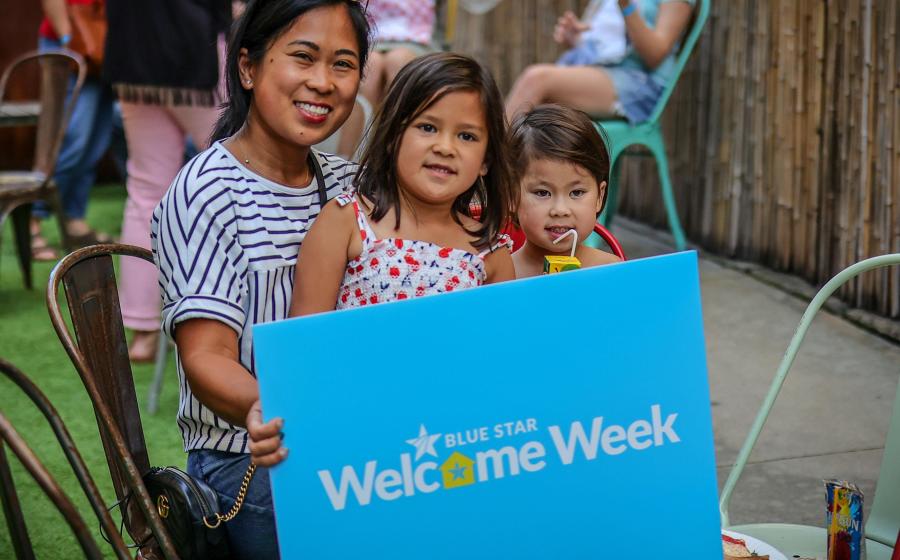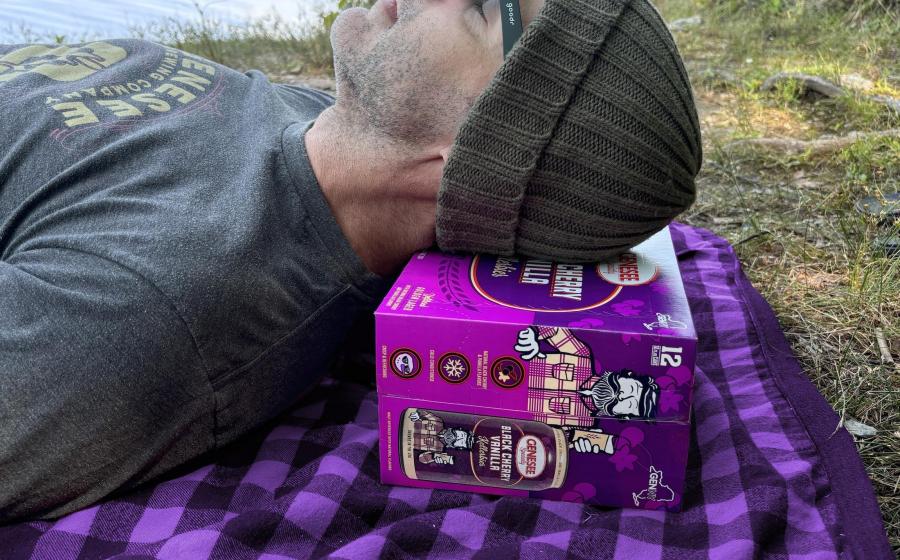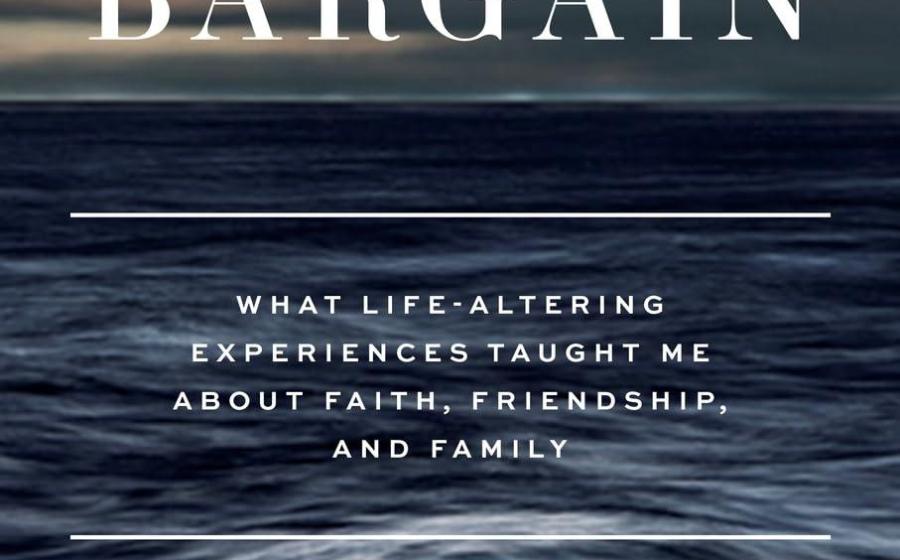 (NewsUSA)
(NewsUSA) - Newly diagnosed college student Trevor Dixon shows that managing diabetes doesn’t get in the way of an active life at the transition to adulthood
- Newly diagnosed college student Trevor Dixon shows that managing diabetes doesn’t get in the way of an active life at the transition to adulthood
Trevor was in his second semester of his senior year in high school, when he found himself feeling abnormally thirsty and needing to use the bathroom excessively. He first dismissed it as a symptom of all the exercise he was doing. However, after his mother encouraged him to pay a visit to the family doctor, it was clear all was not well.
Trevor commented; “Born in Arizona, you would think I would drink a lot of water, as it’s usually hot most of the year. But I never really did drink a ton of water or need the bathroom so frequently, so this was strange for me.”
The doctor ran some tests and Trevor’s blood glucose levels were far too high. After being rushed to the ER, Trevor was shocked to learn that he had type 1 diabetes.
The time after the diagnosis was a frightening and confusing period for Trevor and his mother, especially since he was preparing to attend college out-of-state in a matter of weeks. Suddenly, passing finals, enjoying summer and setting up a new life in Southern California seemed more daunting than ever.
Trevor would have to adapt to managing a condition that he knew little about, quickly. Thankfully, there is diabetes education available to people who need support.
One of the big changes Trevor had to make was to his diet and nutrition. He was always partial to sweet things and sodas, but all that had to change; “the biggest thing for me, was I had a sweet tooth, like my mom. After my diagnosis, sweets became a rare treat on occasion,” Trevor said.
Trevor and his mom spoke to their doctor to learn about all the options available to help reduce the burden of managing diabetes effectively. He tried a range of traditional short-term continuous glucose monitors (CGMs), but found them bulky and felt they didn’t work for his lifestyle. He had trouble with the accuracy of some CGMs and felt frustrated that others would be easily knocked off.
Trevor wanted to manage his diabetes and not the limitations of his CGM. He wanted to live his life without worry and pursue his passion of swimming. He wanted to feel comfortable managing his diabetes as he left home for college.
After returning to the doctor for more answers, Trevor’s mom spotted a poster for Eversense and they decided to give it a try. Eversense is the world’s first and only fully implantable long-term CGM and the latest version, Eversense E3, lasts for 180 days vs. just a week or two for other available CGMs.
Trevor acquired his Eversense E3 and began studies at a University in Southern California.
The unique design of the Eversense E3 CGM simplified Trevor’s diabetes management, allowing his life as a college student to be less interrupted by diabetes. The implantable sensor, paired with the removable smart transmitter, is an especially useful feature for Trevor, as it makes swimming for the college team easier.
Trevor also appreciates several other features of Eversense that make his life easier and reduces the burden on him day-to-day, including the discrete on-body vibrations, which don’t draw attention during his college classes.
“Eversense has on-body vibration alerts, which means I can choose to have cell phone notifications either on or off and still manage my diabetes. This is nice because my phone isn't going off all the time in situations like classes where that would be embarrassing to me personally.” Trevor said.
Eversense makes it easy for Trevor to check his real-time glucose readings, glucose trends, as well as receive alerts that predict hypoglycemia and hyperglycemia, all while maintaining his active, busy life. This has been particularly reassuring for Trevor’s mom, who worried about him looking after himself away from home for the first time – and that was before he was diagnosed with diabetes!
Trevor is now a college sophomore, majoring in business and finance. He is on his fourth 180-day Eversense sensor, and doesn’t let diabetes slow him down from swimming, studying and spending time at the beach with friends.
“Make sure some of your friends know about your condition, so they can offer support if you need it,” says Trevor. But overall, Trevor says he has been able to incorporate diabetes management into his life without much fuss, thanks to Eversense.
The Eversense E3 is broadly covered for people living with diabetes across the United States. For more information about successfully managing diabetes, visit EversenseDiabetes.com/get-started-today.
Trevor Dixon is an Eversense brand ambassador and this article was sponsored by Ascensia Diabetes Care
 - Although most Americans recognize the benefits of spending time outdoors, 57 percent say that they don’t spend as much time in nature as they need and want, according to research from RVshare, the largest online community for RV owners and renters in the United States.
- Although most Americans recognize the benefits of spending time outdoors, 57 percent say that they don’t spend as much time in nature as they need and want, according to research from RVshare, the largest online community for RV owners and renters in the United States.

 - The average military family moves three times as often as their civilian peers, and most of these permanent change of station (PCS) moves occur during the summer, according to Blue Star Families, a nonprofit organization dedicated to empowering, supporting, and connecting military families in communities around the world.
- The average military family moves three times as often as their civilian peers, and most of these permanent change of station (PCS) moves occur during the summer, according to Blue Star Families, a nonprofit organization dedicated to empowering, supporting, and connecting military families in communities around the world.
 - It's that time of year again! The time between summer and fall when some people start thinking about leaves and football, while others aren’t quite ready to trade in their flip-flops for flannel.
- It's that time of year again! The time between summer and fall when some people start thinking about leaves and football, while others aren’t quite ready to trade in their flip-flops for flannel.
 - For Donald Denihan, it was supposed to be the fishing trip of a lifetime. Instead, it ended up nearly costing him his life in a hard bargain he made with the sea.
- For Donald Denihan, it was supposed to be the fishing trip of a lifetime. Instead, it ended up nearly costing him his life in a hard bargain he made with the sea. Denihan’s story is documented in riveting detail in his new book HARD BARGAIN (Stillwater River Publications). The book is best described as part gripping true adventure story and part self-reflection on how being on the doorstep of death helped him get a better grasp on what is really important in life.
Denihan’s story is documented in riveting detail in his new book HARD BARGAIN (Stillwater River Publications). The book is best described as part gripping true adventure story and part self-reflection on how being on the doorstep of death helped him get a better grasp on what is really important in life.
 - Threats to global stability continue to evolve to include greater use of artificial intelligence (AI) to promote disinformation, according to experts at the
- Threats to global stability continue to evolve to include greater use of artificial intelligence (AI) to promote disinformation, according to experts at the 
 - The summer heat still lingers, but parents and caregivers have embarked on the annual ritual of preparing children for the school year ahead. Store shelves overflow with school supplies, and dorm décor, a clear sign of this busy season. Amidst the hustle, one crucial task often gets overlooked: ensuring children are up to date on their recommended immunizations. This is especially vital for students heading to college or living in group settings, where reminders or school-entry vaccination requirements may be lacking.
- The summer heat still lingers, but parents and caregivers have embarked on the annual ritual of preparing children for the school year ahead. Store shelves overflow with school supplies, and dorm décor, a clear sign of this busy season. Amidst the hustle, one crucial task often gets overlooked: ensuring children are up to date on their recommended immunizations. This is especially vital for students heading to college or living in group settings, where reminders or school-entry vaccination requirements may be lacking.
 - The
- The  -
-  When I Stop Fighting by Daryl Dittmer
When I Stop Fighting by Daryl Dittmer Peach Tea Smash by Laura Childs
Peach Tea Smash by Laura Childs Vermilion Harvest by Reenita M. Hora
Vermilion Harvest by Reenita M. Hora 500 Ways to Eat Like a Local by Jon Douglas
500 Ways to Eat Like a Local by Jon Douglas
 - Newly diagnosed college student Trevor Dixon shows that managing diabetes doesn’t get in the way of an active life at the transition to adulthood
- Newly diagnosed college student Trevor Dixon shows that managing diabetes doesn’t get in the way of an active life at the transition to adulthood

 - Buying over-the-counter (OTC) medicines or dietary supplements online can be easy and convenient, but how can you be sure that you know and trust the seller? As the number of counterfeit OTC products sold online has grown in recent years, along with scammers’ abilities to mimic legitimate products, experts at the Health In Hand Foundation, a non-profit with 20 years of helping consumers safely choose and use consumer healthcare products, are here to help you navigate the ever-changing landscape of counterfeit and resold OTC products.
- Buying over-the-counter (OTC) medicines or dietary supplements online can be easy and convenient, but how can you be sure that you know and trust the seller? As the number of counterfeit OTC products sold online has grown in recent years, along with scammers’ abilities to mimic legitimate products, experts at the Health In Hand Foundation, a non-profit with 20 years of helping consumers safely choose and use consumer healthcare products, are here to help you navigate the ever-changing landscape of counterfeit and resold OTC products. 


